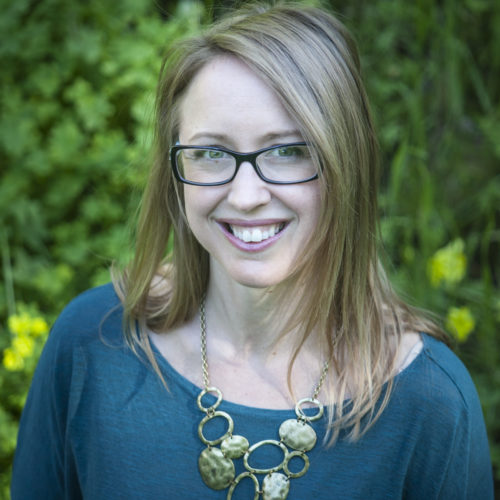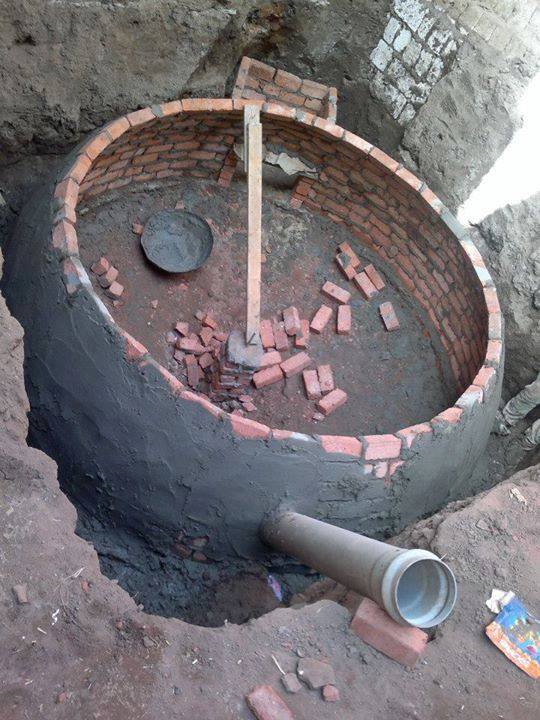Mohamed Ghareb, the co-founder and CEO of Bio Tech, wants to harness the power of cow feces by creating underground biogas units on farms in this largely agricultural country. Biogas units capture the gases released from methane and nitrogen and turn them into two products: a gas that can be used to cook, heat homes and provide electricity, and an organic fertilizer.
Suez, Egypt
Resource Efficiency and Sustainable Waste Management
From Upper Egypt to the Nile Delta, cows dot the landscape. There are millions of them in an almost-arid country, grazing, chewing cud, and eventually, excreting. It’s estimated that the average cow eliminates 360 kilograms of manure per year, and that the manure from 200 cows produces as much nitrogen gas as the sewage from a community of 5,000-10,000 people. Cattle herds also produce a gas called methane, which accounted for 16% of the global greenhouse gas emissions in 2015, deeming cows a major environmental hazard.
The birth of a biogas engineer:
Ghareb studied production engineering at Suez Canal University. While there, he joined a recycling project where he learned about leadership and community. Then, after graduation, he started up with Nahdet el Mahrousa, an organization that serves as an incubator for new innovative social initiatives in the Middle East.
Driven by a passion for the environment, Ghareb was determined to start a company of his own that would mitigate the energy problems in Egypt. He later received EGP 50,000 in funding from Nahdet el Mahrousa.
For several years now, Egypt has faced intermittent power outages, and households regularly face a shortage of natural gas for cooking.
“We started thinking about the market, the community and what we could do to help,” Ghareb said. “So we decided to build biogas units for farmers. We want to be the largest biogas recycling company in the Middle East.”
The gas produced by biogas units does not only provide a source of renewable energy, but a fertilizer as well.
“Most farmers use a chemical fertilizer which is very bad for the environment, and for us as well,” said Ghareb. “The natural fertilizer we create is cheaper and has more nitrogen and minerals. It can increase the productivity of a land from 30-50%.”
The roadblocks to building biogas units:
If you drive down a rural highway in Egypt, it’s not surprising to see huge heaps of manure from farm animals. That’s where many farmers dump their animal waste, sending methane straight into the atmosphere.
This disturbs Ghareb, who knows just how much gas is created by that mountain of manure. He wants to build large-scale biogas units in these rural areas, but said it’s often hard to convince people that the units are a valuable investment.
“Farmers don’t want to pay very much and they need assistance,” said Ghareb. “Last year we built only three units because farmers didn’t understand them. We changed our business model to work directly with farmers, and we did a lot of awareness lectures and workshops to educate people about recycling and what we do.”
The government has also been slow in supporting renewable energy models. Subsidies for fossil fuels are still high, making the odds for renewable energy companies to compete rather slim. Plus, government upheavals over the past few years have left the country with a staggering amount of debt, which makes it less likely to support environmental programs.
“We need more effort from the government. Right now, there are policies about solar and wind energy, but not biogas,” said Ghareb. “I would like to sell biogas energy to the government, but right now I just sell to the private sector.”
So far, Bio Tech has built 30 biogas units in six governorates in Egypt.
Why biogas is important for environmental progress:
Countries throughout the Middle East are investing in renewable energy, with Morocco leading the way. The African country opened the largest wind farm in the continent in 2014, valued at $1.4 billion, and in 2016, it opened the world’s largest solar plant. Egypt is following in its footsteps, with plans to tap more into the power of solar as well.
Christine Lins, Executive Secretary of Renewable Energy Policy Network of the 21st Century (Ren21), said there needs to be a stable policy framework in place for investors to give money to renewable projects.
“We have seen record investments in the Middle East and Africa. Investment increased from $1 billion in 2004 to $12.5 billion in 2015,” she said. “Investors will only come if they find stability in the market, so the predictability of a policy framework is key.”
She said in the race to funnel solar power and wind, biogas is often overlooked, but it’s a very important source of renewable energy.
“When it comes to heating, cooling and clean cooking, there hasn’t been a lot of focus, so it’s important all sources are taken into account, including biogas,” says Lins. “But there are some successful projects. In Kenya, one biogas project is used to cultivate 700 hectares (7 square kilometers) of land and power 5,000-6,000 rural homes. Biogas projects are happening, but not systematically. With growing municipalities and agriculture, it’s important that energy from biogas waste projects is used.”
Ghareb is keen on making a difference in Egypt. “One of the important things we all think about is climate change. It’s really affecting agriculture in Egypt, and us as human beings,” he said. “We are trying to make the world better for all people.”
Facebook: https://www.facebook.com/biotecheg
Photos: Courtesy of Bio Tech.







